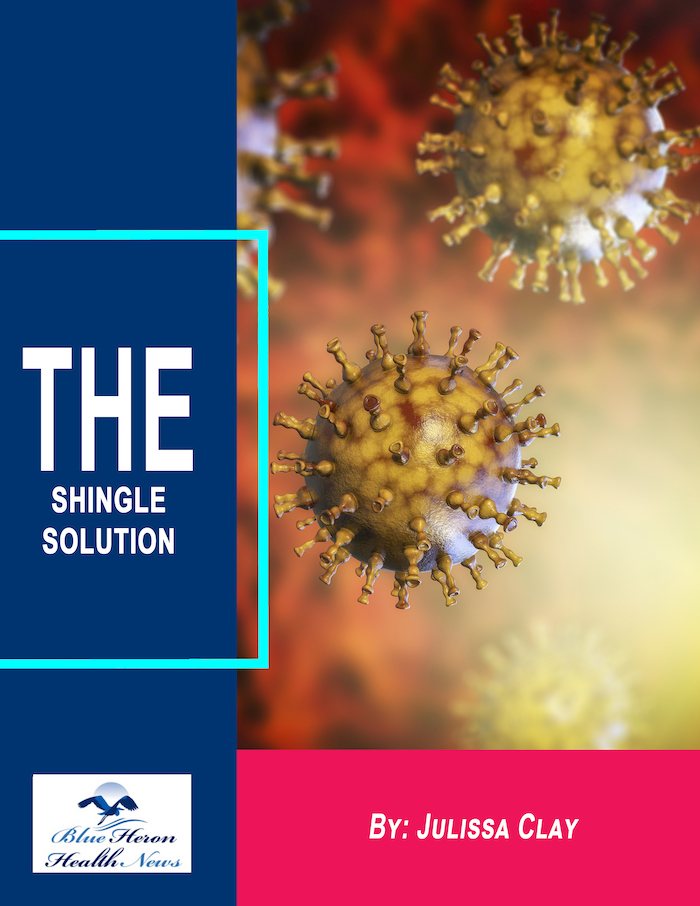
The Shingle Solution™ By Julissa Clay This eBook includes a program to treat the problem of shingle naturally. The author of this eBook, Julissa Clay, a practitioner in natural health, has killed the shingles causing virus completely to overcome the problem of PHN or Postherpetic neuralgia, one of the common complications caused by shingles. This program helps in melting PHN in a few weeks and make shingles a forgotten nightmare.
How can shingles affect daily life?
Shingles, also known as herpes zoster, can significantly affect daily life in various ways, depending on the severity and location of the outbreak, as well as the individual’s overall health. The impact of shingles can be both physical and psychological, and it can affect personal, social, and professional aspects of life. Here is an in-depth look at how shingles can affect daily life:
Physical Impact
1. Pain and Discomfort
- Acute Pain: The most immediate and prominent symptom of shingles is pain, which can be severe and debilitating. This pain can manifest as a burning, stabbing, or throbbing sensation.
- Postherpetic Neuralgia (PHN): In some cases, pain persists long after the rash has healed, a condition known as PHN. This chronic pain can last for months or even years, significantly impacting daily activities and quality of life.
2. Itching and Irritation
- Constant Itching: The rash and blisters associated with shingles can cause intense itching, which can be distressing and distracting.
- Skin Sensitivity: The affected area can become extremely sensitive to touch, making even light contact with clothing or bedding uncomfortable.
3. Fatigue and Malaise
- Overall Weakness: The body’s immune response to the varicella-zoster virus can lead to general fatigue and malaise, reducing energy levels and making it difficult to perform daily tasks.
- Sleep Disruption: Pain and discomfort from shingles can interfere with sleep, leading to further fatigue and a decrease in overall physical health.
4. Reduced Mobility
- Muscle Weakness: In some cases, shingles can cause muscle weakness, particularly if the nerves affected are those that control muscle movements. This can limit mobility and physical function.
- Painful Movement: Pain and discomfort can make it difficult to move freely, leading to reduced physical activity and potential muscle atrophy over time.
Psychological Impact
1. Stress and Anxiety
- Fear of Pain: The anticipation of pain, especially during flare-ups, can lead to significant stress and anxiety.
- Impact on Mental Health: Chronic pain from PHN can contribute to the development of anxiety disorders and depression, affecting overall mental well-being.
2. Depression
- Chronic Pain: Persistent pain can lead to feelings of hopelessness and helplessness, common symptoms of depression.
- Social Isolation: The physical symptoms of shingles can make social interactions challenging, leading to isolation and loneliness, which can further exacerbate depression.
3. Cognitive Function
- Concentration Issues: Pain and discomfort can interfere with the ability to concentrate and focus on tasks, impacting productivity and cognitive performance.
- Memory Problems: Stress and fatigue associated with shingles can also affect memory and cognitive function.
Social Impact
1. Personal Relationships
- Communication Barriers: Pain and discomfort can make it difficult to engage in conversations and maintain relationships.
- Decreased Intimacy: Physical symptoms and psychological distress can reduce intimacy and sexual activity, affecting romantic relationships.
2. Social Activities
- Limited Participation: Pain, fatigue, and discomfort can make it challenging to participate in social activities, leading to withdrawal from social engagements.
- Avoidance Behavior: Fear of pain or discomfort in social settings can result in avoidance of social interactions altogether.
3. Caregiver Strain
- Family Impact: Family members or caregivers may experience increased stress and burden in providing support and care for someone with shingles, affecting family dynamics and relationships.
Professional Impact
1. Work Performance
- Reduced Productivity: Pain and discomfort can hinder the ability to concentrate and perform tasks efficiently, leading to decreased productivity at work.
- Absenteeism: Severe symptoms may require time off work, leading to absenteeism and potential financial strain.
2. Occupational Challenges
- Physical Demands: Jobs that require physical activity can be particularly challenging for individuals with shingles, especially if mobility is affected.
- Cognitive Demands: Roles that require high levels of concentration and cognitive function may also be impacted by the cognitive and psychological effects of shingles.
3. Workplace Accommodations
- Modified Duties: Some individuals may need modified duties or accommodations at work to manage their symptoms effectively.
- Supportive Environment: A supportive work environment and understanding from employers and colleagues can significantly help individuals manage their condition and maintain productivity.
Financial Impact
1. Medical Expenses
- Treatment Costs: The cost of antiviral medications, pain relievers, and other treatments can add up, especially if the condition persists or if complications arise.
- Healthcare Visits: Frequent visits to healthcare providers for management and follow-up can also contribute to medical expenses.
2. Lost Income
- Time Off Work: Absenteeism due to severe symptoms can result in lost income, particularly for individuals without paid sick leave.
- Reduced Work Hours: Reduced productivity and the need for part-time work or reduced hours can also impact financial stability.
Daily Living Activities
1. Personal Care
- Hygiene: Painful or sensitive skin can make personal hygiene tasks, such as bathing and dressing, difficult and uncomfortable.
- Independence: Severe symptoms may require assistance with daily activities, affecting an individual’s independence and self-esteem.
2. Household Tasks
- Chores: Tasks like cooking, cleaning, and shopping can become challenging due to pain, fatigue, and reduced mobility.
- Home Adjustments: Some individuals may need to make adjustments in their home environment to accommodate their condition, such as installing grab bars or using assistive devices.
3. Leisure Activities
- Hobbies and Interests: Pain and discomfort can limit the ability to engage in hobbies and recreational activities, affecting overall quality of life.
- Exercise: Physical activity is essential for overall health, but pain and mobility issues can make it difficult to maintain an exercise routine.
Coping Strategies and Support
1. Pain Management
- Medications: Following prescribed treatments and using over-the-counter pain relievers as needed.
- Home Remedies: Utilizing home remedies like cool compresses, oatmeal baths, and topical treatments to alleviate symptoms.
2. Psychological Support
- Counseling: Seeking counseling or therapy to address anxiety, depression, and stress.
- Support Groups: Joining support groups for individuals with shingles or chronic pain to share experiences and coping strategies.
3. Lifestyle Adjustments
- Rest: Ensuring adequate rest and sleep to support healing and manage fatigue.
- Diet and Hydration: Maintaining a balanced diet and staying hydrated to support overall health and recovery.
4. Social and Professional Support
- Communication: Keeping open lines of communication with family, friends, and colleagues about your condition and needs.
- Workplace Accommodations: Discussing potential accommodations with employers to manage work responsibilities effectively.
Conclusion
Shingles can significantly impact daily life in multiple ways, from physical pain and discomfort to psychological stress and social challenges. The effects on personal relationships, professional life, and overall quality of life can be profound. Effective management involves a combination of medical treatment, home remedies, lifestyle adjustments, and support from healthcare providers, family, and friends. By addressing the various aspects of shingles, individuals can better manage their symptoms, improve their quality of life, and reduce the long-term impact of the condition.

The Shingle Solution™ if you are suffering from shingles then The Shingle Solution can be the best program for you to relieve your pain and itching by using a natural remedy. It describes the ways to use this program so that you can feel the difference after using it as directed. This natural remedy for shingles can also help in boosting your immune system along with repairing your damaged nerves and relieve pain and itching caused by shingles.